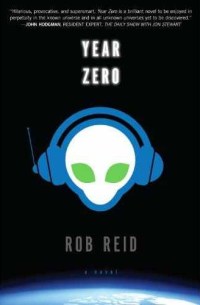Blood Test by Charles Baxter
 Monday, October 14, 2024 at 9:45AM
Monday, October 14, 2024 at 9:45AM 
Published by Pantheon on October 15, 2024
The quality of being ordinary might seem like a curse to ordinary people. We are often told that none of us are ordinary, that everyone is special. When a Sunday school student tells Brock Hobson that he’s special, not ordinary at all, he rejects the premise. He knows he has no superpower. He thinks of himself as just one of God’s creatures, a boring one at that. Blood Test suggests that living an ordinary life with decency, charity, and forgiveness might be a superpower that anyone can develop.
Brock sells insurance in a small Ohio city. He has teenage kids — a son and a daughter — with his ex-wife Cheryl. His wife left him for Burt because Burt, while a complete idiot, is unpredictable (meaning impulsive), while Brock is “predictable as a clock.” Burt is also good looking and great in bed, qualities that offset his idiocy in Cheryl’s mind.
Burt belongs to a cult that believes particles in plastic bottles have “wormed their way into your bloodstream and your brain. The plastic promotes indifference and apathy and online shopping.” I knew there was an explanation!
The kids spend most of their time with Brock, even when they’re supposed to be with their mother. Burt belittles Brock’s son Joe because Joe is gay. Cheryl assures Joe that she loves him “even though you’re queer.” Brock’s daughter Lena is in love with her boyfriend and plans an idyllic lifetime with him, beginning by attending the same college. But when does the future ever follow a teenager’s plan?
Brock is a decent, conventionally religious midwestern guy. He feels sorry for the dead animal when he sees roadkill and imagines their last frightened moments of life, “though my grief is not excessive.” Brock is dating a woman he calls Trey. Her superpower is standing very still until deer and birds will take food from her hand. They make a good couple.
The novel’s amusing plot follows Brock’s response to a shady sales pitch for a product that can, by testing his blood and analyzing his answers to bizarre questions, predict his future. Brock would like to know whether he will do anything interesting with his life, so he pays the fee and takes the tests. The company predicts that he is “about to embark on a major crime wave. It’s all down on paper. I wish you luck and Godspeed.” He later learns that the crime spree will include a murder. Fortunately, the shady company can sell him insurance that will pay for his legal defense. The company even sells him the gun he will use to commit the crime.
It occurs to Brock that he now has complete freedom, including a license to kill. If bad acts are destined, we can hardly be blamed for committing them. “I can go wild,” Brock thinks. “I have a perfect alibi. The mainframe has said so.”
Apart from struggling with the ramifications of losing free will, Brock needs to decide how to address his son’s dark writings and drawings, the kind of things that parents should see as red flags. An apparent lunatic gives Brock some simple advice for dealing with his son: “Ask him what he wants.”
It’s probably not a spoiler to say that Brock (who occasionally speaks directly to the reader) reveals that the book isn’t about a blood test at all, but is actually a love story. I’m not sure I see it that way, although it might be a bunch of love stories, a romcom with an ensemble cast. Brock’s daughter is in love or in lust with her boyfriend. Brock’s love for Cheryl still motivates him to help her despite his betrayal. Cheryl’s love for Burt — even after Burt suffers a disability for which he blames Brock — is inexplicable. Brock’s love for Trey and for his son are integral parts of the story.
Brock might be predictable, but the plot is not. It leads to a duel, but only after Brock nearly shoots someone by accident. Gun violence is a problem in society that only becomes larger when someone as inept as Brock is armed. One of the novel’s lessons is that ordinary people don’t need guns.
Another lesson — at least in Brock’s view — is that being handsome makes life too easy. For losers like Burt, “having any woman you want degrades your character. The whole idea of monogamy stops making sense.” No sensible woman would want Burt for anything but his body. “Except for the gym and the hunting, Burt is lazy and empty-headed. He’s quite at home here in America, if I could generalize for a moment.”
There are also lessons in tolerance and forgiveness, on top of the question of free will. Fortunately, the lessons blend nicely with the plot’s goofiness. They don’t come across as lectures and never get in the way of the genuine laughs that the story inspires.
RECOMMENDED



